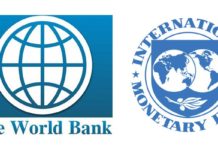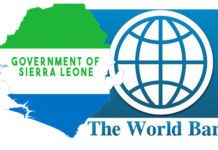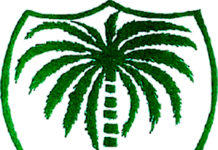by Mahmud Tim Kargbo
August 9, 2021
In a report published on the 5th August 2021 by the World Bank titled “Sierra Leone 2021 Economic update: Welfare and Poverty Effect of the COVID-19 Pandemic” (https://openknowledge.worldbank.org/handle/10986/35784), the report found that restrictions put in place to contain the spread of COVID-19, as well as the downturn in the global economy, led to a small increase in poverty in the country, thereby reversing the previous trend of poverty reduction. In the same report, the urban area, Freetown, has seen the largest increase in poverty. For Sierra Leoneans to get a proper understanding of the report, I categorise it in three ways by asking the following questions: Do we agree, what is responsible for the small increase in poverty as reported by the World Bank and who should be blamed?
DO WE AGREE?
Partially, whilst there’s a small increase in poverty, It is very clear that poverty has a measure in terms of its relative and absolute form. For example, relative poverty compares the person or household income (expenditures) to the income distribution of the country of residence, it’s a first indicator of inequality. Absolute poverty on the other hand, is measured with reference to the cost of a basket of minimum basic goods and services, for instance food.
With recent research conducted, the Government of Sierra Leone in it capacity provided series of funds to cushion the poverty on the people by offering series of incentives to the business people and the destitute. For example, there was a $50,000,000 short term financing that was issued to importers of various commodities at a very minimal lending rate of 7%, with the expectation that this will bring about a reduction in the prices of basic commodities in the country to meet the pockets of the suffering majority during the pandemic. To the astonishment of government authorities, some of these importers purported that the freighting cost of importation has increased by more than 200% as a result of the pandemic. Thereby bring about the small increase in poverty in the Bio regime the World Bank is referring to in its recent report.
WHAT IS RESPONSIBLE FOR THAT?
Prior to the advent of COVID-19, the economic and business sector in the country has always been skewed in favour of few individuals whose interests are not to support the government of Sierra Leone, but rather to continuously amass wealth and make the majority of the people in the country impoverished. A clear case in point is the example of the $50,000,000 soft loan credit given to various importers in the country, in which the government was expecting prices of essential commodities to remain at a pre-pandemic level because of the low interest rate given on this facility. Unfortunately, these same few individuals were able to circumvent the government by casting false claimed on increase in freighting costs to justify their selfish interest, and continue to undermine the government’s action to ensure prices of essential commodities increase during the pandemic this necessitated the small increase in poverty as indicated by the World Bank report…
Reasons, why some countries were able to sustain their favourable economic conditions for their people, is due to the fact that some of these countries aren’t import driven economies as is the case for Sierra Leone. A strong and vibrant agricultural sector should have been a counter to the increase in these commodity’s prices. Hence the reason why the government of President Bio is working very hard to lift the agricultural sector from its current small scale to mechanised level. For example, the Tormabom rice project, once developed, will bring a reduction in the importation of the country’s staple food and also reduce the need for international hard currencies.
Another consideration by the Bio led government is its effort to diversify into the consumption pattern of the people in the country. Commodities such as cassava, potato, yams, plantains and bananas could be alternatives to rice. And hence bring returns to those harvesting these commodities to reduce the small increase in poverty as stated in the World Bank report.
WHO SHOULD BE BLAME?
Based on the needs of the country for Direct Foreign Investment in the agricultural and other sectors, the role of the World Bank, International Monetary Fund, and the African Development Bank is very much pivotal at this juncture. Reasons being, most Foreign Direct Investments in third world countries often requires government guarantees on which to based their investment upon.
The World Bank, International Monetary Fund, and African Development Bank being the primary interface of these Foreign Direct Investments and governments in third world countries, their constant perception or assertion of debt increase and lack of guarantees often dissuade these investors from committing their funds to these countries. Hence the low level of investment in agriculture and other sectors which should have created the much-needed employment facilities to reduce the small increase in poverty as indicated in the World Bank report.
A typical example in relation to this Foreign Direct Investments which should have created an enormous impact on the Sierra Leone economy is the establishment of a smelting plant for iron ore, the country’s main export to finished products such as rebar and other steel metals. Rather than the World Bank, International Monetary Fund and African Development Bank supporting this kind of project, they would rather prefer for the country to engage in giving mining licences and concessions to foreign companies with no positive impact on the economy and the people in the country.




